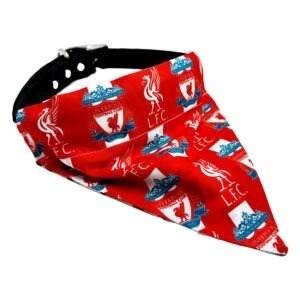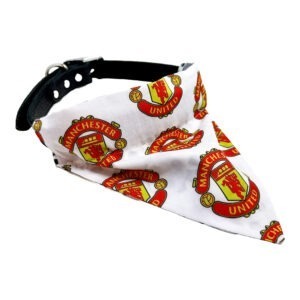Golden Retrievers are one of the most beloved dog breeds in the world. Known for their friendly and gentle nature, they make excellent family pets and companions. If you’re considering getting a Golden Retriever or already have one, it’s important to understand their personality and unique traits. In this article, we will explore the various aspects of the Golden Retriever’s personality, including their temperament, training needs, health, nutrition, and compatibility with other pets. By gaining a deeper understanding of these traits, you can ensure a happy and fulfilling relationship with your furry friend.
Overview of the Golden Retriever Breed
Before diving into the specifics of their personality, let’s start with a brief overview of the Golden Retriever breed. Golden Retrievers are medium to large-sized dogs with a sturdy build and a beautiful golden coat. They were originally bred in Scotland as hunting companions, specifically for retrieving waterfowl. Today, they are widely recognized for their intelligence, loyalty, and versatility. They excel not only as hunting dogs but also as therapy dogs, search and rescue dogs, and guide dogs for the visually impaired.
Golden Retriever Personality and Temperament
One of the key reasons why Golden Retrievers are so popular is their delightful personality and temperament. They are known for their friendly and outgoing nature, making them excellent family pets. Golden Retrievers are typically very social and love to be around people. They are gentle, patient, and great with children, making them an ideal choice for families with kids. Their eagerness to please and their natural instinct to retrieve objects make them highly trainable and obedient.
Some of our latest products...
-
-
-
개 반다나
맨체스터 유나이티드 강아지 반다나
$ 13.19 - $ 16.12 USD 옵션 선택 이 제품에는 여러 가지 변형이 있습니다. 옵션은 제품 페이지에서 선택할 수 있습니다. -
Training Your Golden Retriever
Training is an essential aspect of owning a Golden Retriever. With their intelligence and willingness to learn, they thrive in structured environments where they receive consistent training and positive reinforcement. Here are some key training areas to focus on:
Obedience Training
Obedience training is crucial to ensure that your Golden Retriever becomes a well-behaved and obedient member of your family. Basic commands such as sit, stay, come, and heel should be taught from an early age. Positive reinforcement techniques, such as treats and praise, work best when training a Golden Retriever.
사회화
Proper socialization is important to help your Golden Retriever become comfortable and confident in various environments and situations. Introduce them to different people, animals, sounds, and environments from a young age. This will help prevent behavioral issues and ensure that your Golden Retriever grows up to be a friendly and well-adjusted dog.
Dealing with Behavioral Issues
Although Golden Retrievers are generally well-mannered, they may occasionally exhibit behavioral issues. Separation anxiety, excessive barking, and chewing are some common problems that may arise. Consistency, patience, and positive reinforcement techniques can help address and resolve these issues effectively.
Health and Lifespan of Golden Retrievers
Golden Retrievers are generally healthy dogs, but like all breeds, they are prone to certain health issues. Understanding their common health problems and providing appropriate preventative care can help ensure a long and healthy life for your Golden Retriever.
Common Health Issues
Some common health issues that Golden Retrievers may face include hip dysplasia, elbow dysplasia, cataracts, and certain types of cancer. Regular check-ups with a veterinarian, a balanced diet, and exercise can help minimize the risk of these conditions.
Preventative Care
Regular veterinary visits, vaccinations, parasite prevention, and dental care are essential for maintaining your Golden Retriever’s overall health. Additionally, keeping them at a healthy weight and providing regular exercise will help prevent obesity-related issues.
Typical Lifespan
On average, Golden Retrievers have a lifespan of 10 to 12 years. However, with proper care and attention to their health, some Golden Retrievers can live well into their teens.
Nutrition for Golden Retrievers
Providing a balanced and nutritious diet is crucial for your Golden Retriever’s overall well-being. Here are some important considerations for each life stage:
Puppy Nutrition
During the puppy stage, Golden Retrievers require a diet that supports their rapid growth and development. Choose a high-quality puppy food that is specifically formulated for large breeds. It should contain the right balance of protein, fat, carbohydrates, vitamins, and minerals.
Adult Nutrition
As your Golden Retriever transitions into adulthood, their nutritional needs change. A balanced adult dog food that meets their energy requirements and supports their overall health is recommended. Consult with your veterinarian to determine the appropriate feeding portions and frequency.
Senior Nutrition
As Golden Retrievers age, their metabolism slows down, and they may become less active. Switching to a senior dog food that supports joint health and contains fewer calories can help prevent weight gain and age-related health issues.
Golden Retrievers and Other Pets
If you have other pets or are planning to introduce a Golden Retriever to your existing pet, proper introductions and management are crucial for a harmonious household.
Introducing a Golden Retriever to Other Pets
When introducing your Golden Retriever to other pets, take it slow and supervise the initial interactions. Allow them to get to know each other gradually and provide positive reinforcement for calm and friendly behavior. Be patient, as it may take time for them to adjust to one another.
Managing Multi-Pet Households
In a multi-pet household, establishing clear boundaries and providing individual attention to each pet is important. Ensure that each pet has their own space, resources, and plenty of positive interactions with you and other family members.
Adopting or Buying a Golden Retriever
If you’re considering adding a Golden Retriever to your family, it’s important to choose a reputable source. Whether you decide to adopt from a rescue organization or buy from a breeder, here are some key factors to consider:
What to Look for in a Breeder
A responsible breeder will prioritize the health and well-being of their dogs. They will conduct health screenings, provide proper socialization, and be knowledgeable about the breed. Visit the breeder’s facilities, ask for references, and observe the puppies and their parents’ behavior.
What to Look for in a Rescue Organization
Rescue organizations play a crucial role in finding loving homes for Golden Retrievers in need. Look for a reputable rescue organization that screens potential adopters, provides necessary medical care, and ensures a good match between the dog and the adoptive family. Ask about the dog’s history, temperament, and any known behavioral or health issues.
Questions to Ask
When interacting with a breeder or rescue organization, don’t hesitate to ask questions. Inquire about the dog’s lineage, health history, vaccination records, and any additional information that can help you make an informed decision.
결론
Understanding the personality of Golden Retrievers is essential for building a strong and lasting bond with these wonderful dogs. Their friendly and gentle nature, combined with their intelligence and versatility, make them a fantastic choice for families and individuals alike. By providing them with proper care, training, and nutrition, you can ensure a happy and fulfilling life for your Golden Retriever.
Frequently Asked Questions (FAQs)
Q1: Are Golden Retrievers good with children? A: Yes, Golden Retrievers are known for their friendly and patient nature, making them great companions for children.
Q2: How often should I groom my Golden Retriever? A: Golden Retrievers have a dense double coat that requires regular brushing to prevent matting. Aim for at least once a week, or more frequently during shedding seasons.
Q3: Do Golden Retrievers require a lot of exercise? A: Yes, Golden Retrievers are an active breed and require regular exercise to keep them physically and mentally stimulated. Daily walks, playtime, and activities such as fetching or swimming are beneficial for them.
Q4: Can Golden Retrievers live in apartments or small homes? A: While Golden Retrievers are adaptable, they thrive in homes with access to a secure yard or ample outdoor space. However, with sufficient exercise and mental stimulation, they can adjust to apartment living.
Q5: Are Golden Retrievers prone to separation anxiety? A: Yes, Golden Retrievers can develop separation anxiety if not properly trained and gradually acclimated to being alone. Crate training and providing mental enrichment can help alleviate this issue.





